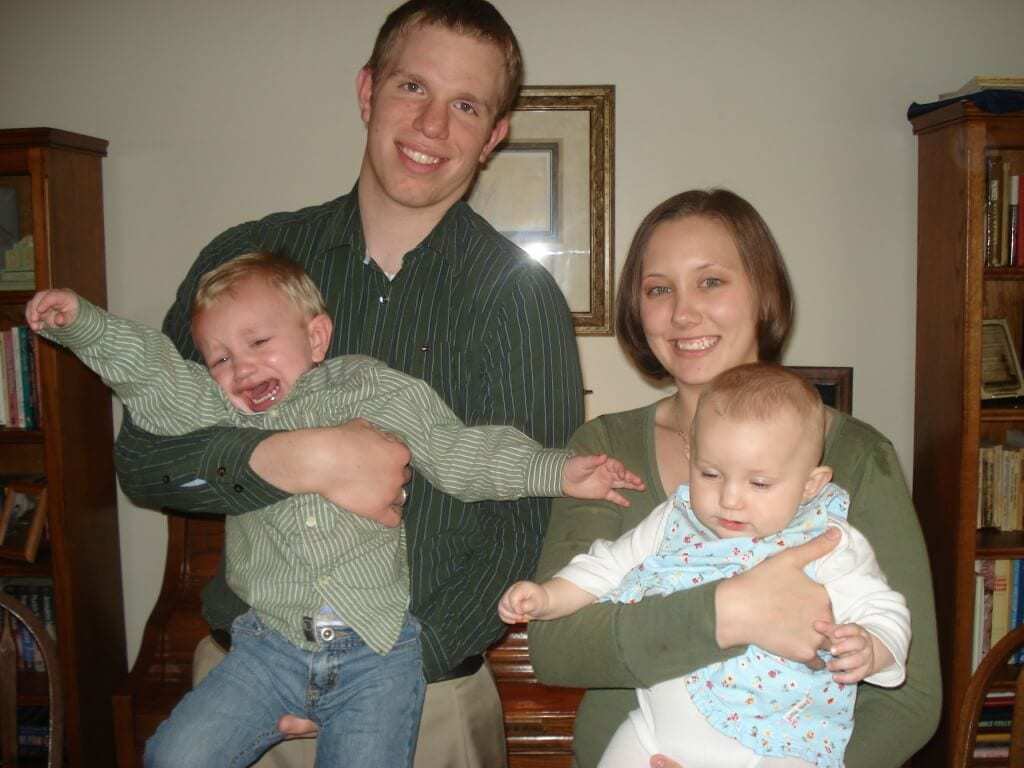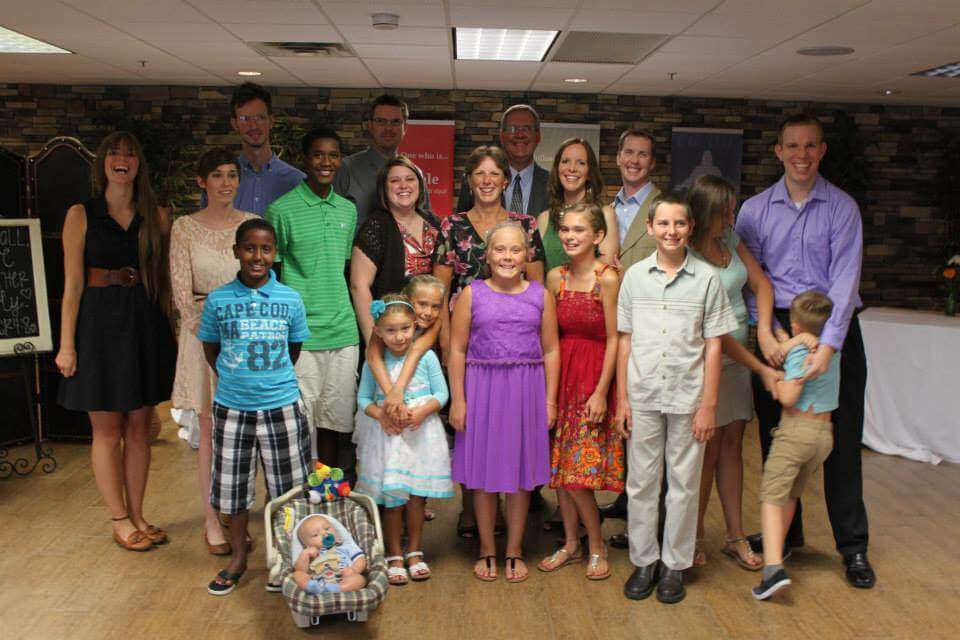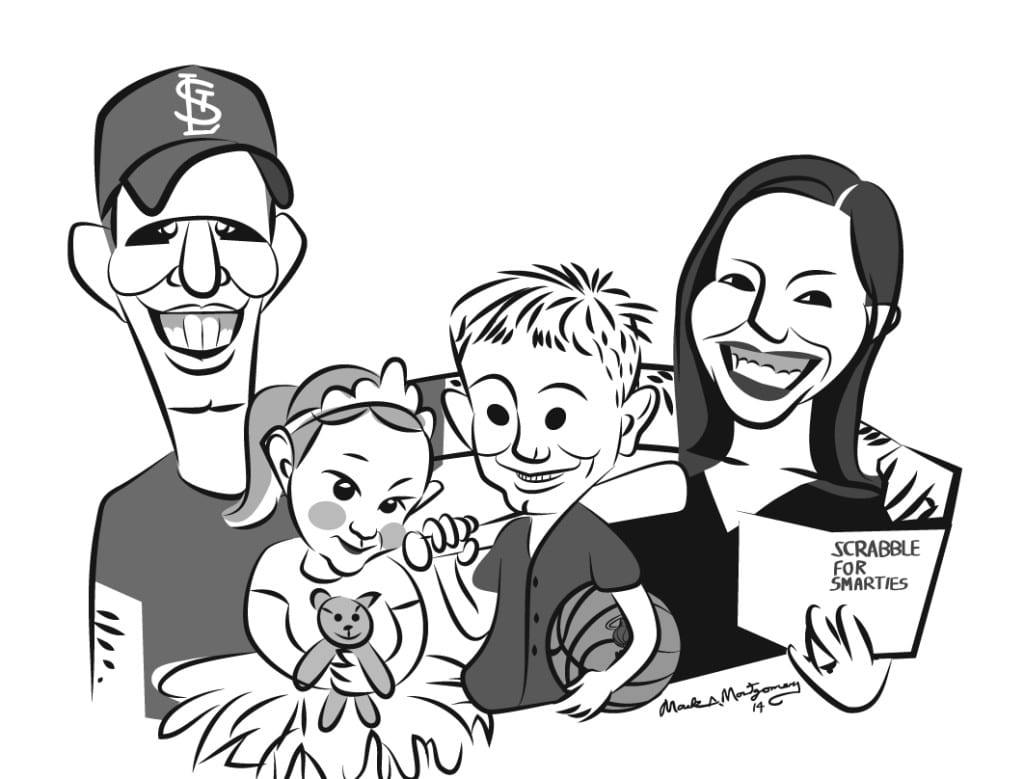By Brittany Zachary
This post is Part 1 of 3 of why we all need an ‘attitude adjustment’.
Post 2: Freak-outs and Question Marks–Getting Diagnosed With Autism and Parenting Strategies
Post 3: Your Child Needs to Experience Chiropractic Attitude Adjustments--Signs Your Child May Have Autism and Natural Treatments
Yep. I said it. It’s the honest truth.
Think about your own family experience when getting prepped for a family picture session. First, there’s the hunt of finding the perfect photographer, researching all of these cute poses from Pinterest that you’d like to re-create (because everyone on Pinterest could be on a Hallmark card), and shopping for, “coordinating” outfits. You can’t be matching. Just, “coordinating”, because you’re not your mother.
On Picture Day, you are told that the photographer can only see you at 11:30AM, 1:30PM, or 4:30PM. Which translates within your brain to, “=Lunchtime, ‘Quiet’/Nap-time, and almost-but-not-quite dinnertime.” I need 9:00AM people. 9:00AM! For most kids, you can bribe them with toys, stickers, or a plethora of other things to get that one shot where everyone is smiling and looking at the camera.
That does not work for my son, Tristan. He hates pictures. Don’t believe me? Here are a couple from over the years.


What is Asperger Syndrome or Autism Spectrum Disorder (ASD)? Is it a real thing?
Yes, it’s a real thing.
Asperger Syndrome (A.S.) is considered on the,” high functioning” end of the Autism Spectrum. Children with A.S.may have delayed motor skills, but typically not delayed cognitive development.
The following behaviors are often associated with Asperger Syndrome. However, they are seldom all present in any one individual and vary widely in degree:
LIMITED OR INAPPROPRIATE SOCIAL INTERACTIONS
- In Pre-K he had one friend. That friend only spoke Spanish. They sat together in silence, and I regarded this as progress.
- In Kindergarten he had one friend he actually played with and conversed with. That friend moved away after the school year.
- In first grade he started having more friends, but his behavior wasn’t always awesome—especially near the end of the year.
“ROBOTIC” OR REPETITIVE SPEECH
- He can’t, “let it go”. Tristan will discuss the same subject F.O.R.E.V.E.R. Not just the same subject. But, the same ONE fact about the ONE subject. And then, he’ll mention it again the next time he walks up to you. It’s a funny or interesting fact the first time. Not the 30th.
CHALLENGES WITH NONVERBAL COMMUNICATION (GESTURES, FACIAL EXPRESSION, ETC.) COUPLED WITH AVERAGE TO ABOVE AVERAGE VERBAL SKILLS
- I can purse my lips and change my breathing for my daughter to understand that I’m angry. For Tristan, I have to verbally explain in great detail precisely what is wrong, why, how to fix it, what would happen if he had made a positive choice versus what happens with a negative choice. I then spell out applicable positive rewards and negative consequences. I feel like I have been punished after the whole thing is over, because it’s exhausting.
TENDENCY TO DISCUSS SELF RATHER THAN OTHERS
- This is another behavior that I’ve noticed changing lately. (I’ll explain why I believe his behavior is changing later.) We have discussed, “Tristan, you will not make friends if you can’t remember their name. It’s really hard to play basketball by yourself.” Instead– he memorizes the yearbook, who was in what class, and tries to learn what they enjoy from the pictures. I think this has helped him be more confident approaching kids at school and at recess.
INABILITY TO UNDERSTAND SOCIAL/EMOTIONAL ISSUES OR NONLITERAL PHRASES
- I think that Tristan understands this more than he might otherwise, because I have always been careful with my language choices when it comes to non-literal phrases. If someone uses them, my husband or I have always explained what the person is trying to say and be their interpreter.
LACK OF EYE CONTACT OR RECIPROCAL CONVERSATION
- Older people at church have lectured me that my son is rude, and I need to teach him manners. I’m working on it people. Praying for my patience would be more helpful than criticizing.
OBSESSION WITH SPECIFIC, OFTEN UNUSUAL, TOPICS
- Sports and reading are what Tristan is obsessive about. We go to the library at least every 2 weeks and get a stack of books. He has read about ancient Roman government, climate change, currency, every sports history book he can find…he even asked for the National Geographic Kids US and World Atlas for his birthday. That’s not normal. Neither is only learning numbers or the alphabet so you can track the St. Louis Cardinals stats.
ONE-SIDED CONVERSATIONS
- He talks, “at” you. Not, “with”.
AWKWARD MOVEMENTS AND/OR MANNERISMS
- He used to grab his ears and rub his head when he was extremely uncomfortable. Since, we have discussed that those are his behaviors, he swings his arms a lot more when he is uncomfortable
COORDINATION PROBLEMS
- Tristan has always had difficulty with fine motor skills—he has done and is currently in occupational therapy though school. He never rolled over, crawled properly (he sat upright and scooted), and his walking was delayed to 18 months. He still cannot ride a bike or tie his shoes and didn’t learn until recently how to buckle the seat belt or unscrew the lid of his water bottle. He is almost 8 years old.
SKILLED OR TALENTED
- This kid knows sports. I believe he will coach a winning team one day or be a broadcaster one day, because he is very inquisitive about stats, history, regulations, and teamwork.
LACK OF PRETEND PLAY BY 18 MONTHS
- Tristan didn’t really play pretend until the ages of 5 and 6 when he started watching his little sister play. Until then (and even mostly still) his play his very logical and realistic.
INABILITY TO UNDERSTAND OTHER’S FEELINGS
- I am fortunate that Tristan has started to understand feelings more every day, and is showing more signs of compassion. However, I remember being really frustrated, because I would be crying about Tristan saying, “I don’t care” after hitting someone. There was no remorse. He knew it was wrong, but didn’t understand why nor did he “care”. How do you make your child care??? No one prepares you for that possibility.
NEED FOR A HIGHLY RIGID AND STRICT ROUTINE
- My husband and I agreed that routines would help our kids feel secure before they were even born. Little did we realize there would be very little exceptions and we would really dislike family vacations, because our son cannot handle routine changes. Tristan has a strict routine for everything.
- Even his play needs to be structured. The YMCA Summer Day Camp? Running around in the gym at church?…every time has resulted in a phone call or side, “chat” about Tristan’s behavior. He self-implements rules and guidelines if they are not given to him…so, you may as well verbally instruct him so that both of you are on the same page.
AGGRESSIVE BEHAVIOR
- Therapy has helped this, along with other services to be discussed in upcoming posts. When he is very upset and cannot use the ‘tricks’ he was taught to calm down, he: hits, screams, claws, kicks, slams doors, throws things, spits etc.
IN ADDITION…
- Tristan also had re-occurring ear infections, constant constipation since about 6 months old, and he was tongue-tied (so there were speech delays). He also inherited his father’s maternal side of the family, “fainting goat gene”. It basically means he passes out from thinking about pain or seeing blood. (It’s an added bonus to teach him how to deal with that).
So. Now you know why we don’t do family pictures. It’s supposed to be a fun experience, and it hasn’t been for years. The chaos of family pictures doesn’t jive with my kiddo.In my upcoming posts, I’ll discuss steps we’ve taken, and are currently taking, to help him cope with his behaviors. He is becoming a happier child every day, and I am so excited to share why I think that is!!!Until then, my first, “attitude adjustment” lesson is this—We, as parents, need to consistently think about what ‘works’ for our family. Yes, I want pictures of my kids growing up, and I would prefer them to be smiling. However, it’s not realistic that they will smile all of the time. I am not about to make Tristan miserable with a picture session. For now, our family picture will have to look like this, and I will remember my little ones laughing hysterically thinking it would be the best picture at Daddy’s office.
To learn more about Tristan’s journey or parenting strategies, click HERE to read the next post.
If you have a question about autism and chiropractic, please contact us today.

Sources
N.a. “Aspberger Syndrome.” Autism Speaks. Web.
Quinn, Patricia. “Understanding Autism.” WebMD. 9 March 2014. Web.
Weintraub, Alan. “Aspberger’s Syndrome.” WebMD. 12 May 2013. Web.

